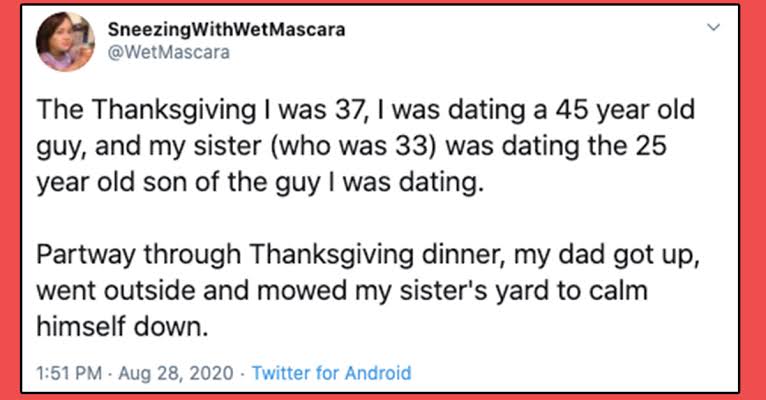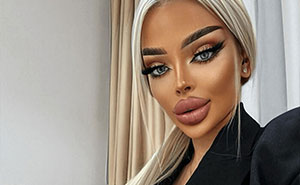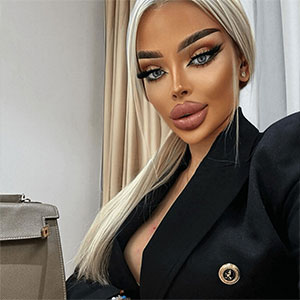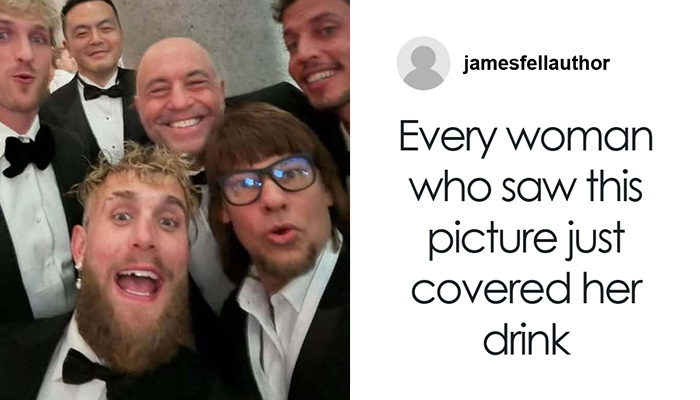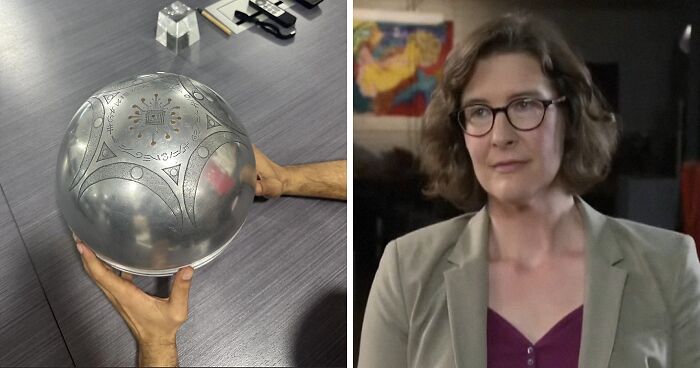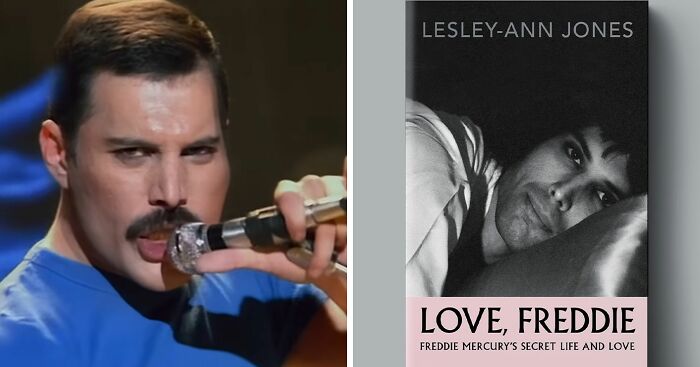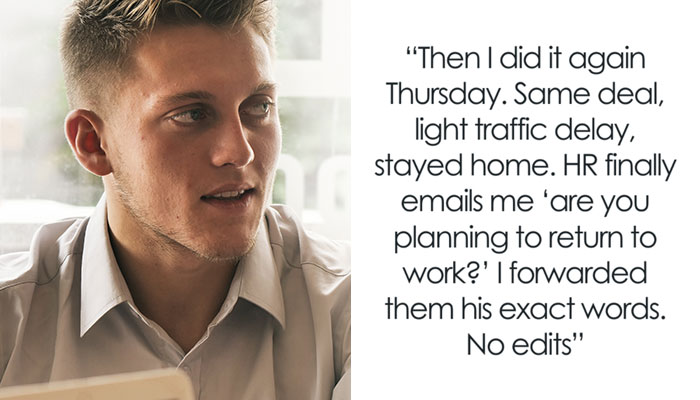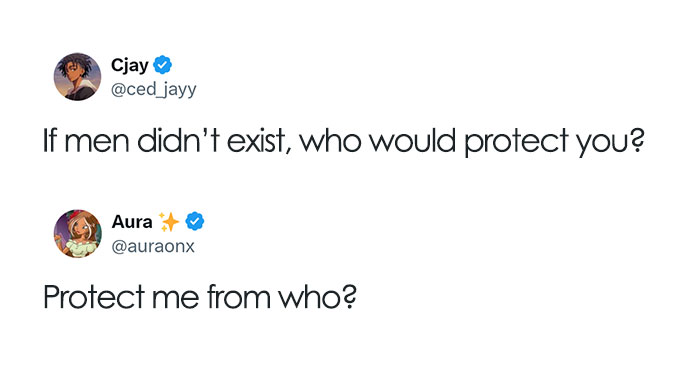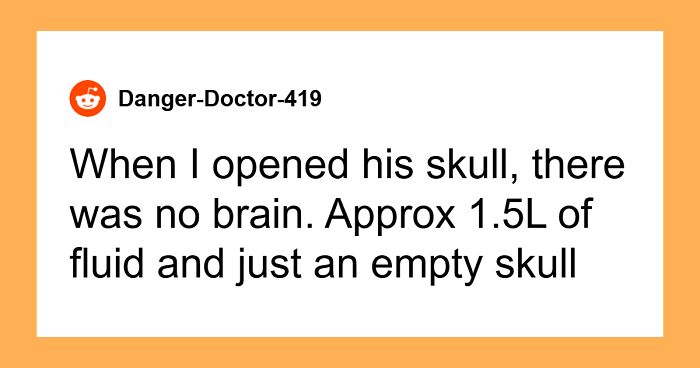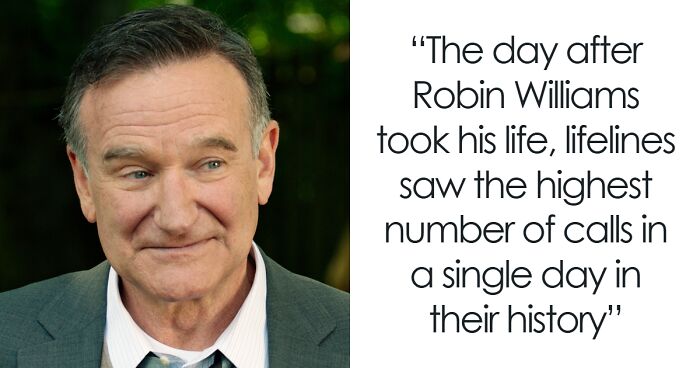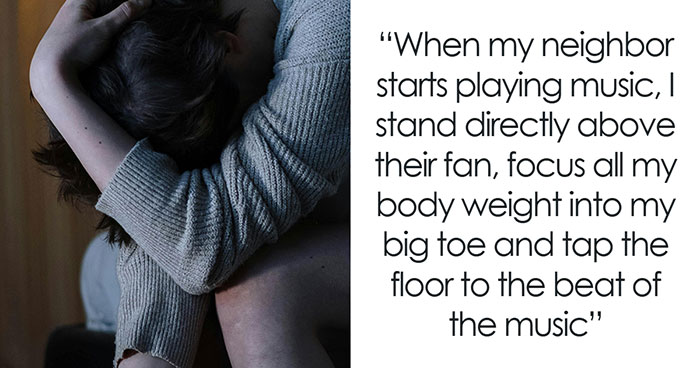It was a dark and stormy night. Mary Sue was looking at her ridiculously beautiful face in the mirror. “I’m so ugly,” she thought to herself, “No one will ever be interested in me.” Outside, the local quarterback and the president of the Shakespearean club were fighting for the right to take her to the prom. Nobody knew it, but the quarterback was secretly a vampire, and the literature club president was the estranged heir to the largest corporation in the nation.
Did you notice how many cliches I just crammed into that little paragraph? You have seen all of these elements and many others time and time again. Writers everywhere, doesn’t matter which genre they write in, keep using them to the point where the reader can sleepwalk through the story and still know what will happen next.
Not to offend anyone, but some writers just can’t do any better, while others genuinely think that using as many recognizable tropes as possible will draw a bigger audience because readers only respond well to something they are already familiar with. And that is a huge cliche in itself.
The only thing literary tropes really do is drag your reader out of the story. And if your entire plot is one big trope, chances are many people will opt to avoid it altogether.
For this article, we collected some of the worst storytelling tropes readers find most annoying. How many of these would you like to see disappear forever? Would you like to add anything to this list of cliches writers should stop using? Let us know in the comments, and definitely share this article with any writer you know.
This post may include affiliate links.
"Describing women of color like they're a dessert menu. 'She had skin of a dark chocolate cinnamon mocha cocoa coffee cake African princess.'"
"Romanticizing mental illness. Stop it."
Yes stop it! There's nothing to romanticise about mental illness. Sometimes there's a lot to laugh at - I can say without any downvotes as I'm a lifelong sufferer.
geminiloveca said:
"Characters describing themselves while looking in the mirror."
HelloIsFloob replied:
"She looked tenderly into the mirror with her technicolor eyes, her perfect, flowing hair shining beautifully. Her dress, her makeup, her every conceivable aspect was absolutely, divinely perfect. Mary Sue sighed. Why was she born flawless? Why couldn't she just be a normal human being like everyone else? She shrugged it off and took her pet dragon to magic school."
"Two guys fighting for one girl who is surprised that anybody at all likes her. Usually a high school student, the guys (one or both) generally have some sort of supernatural aspect, small town, girl doesn’t have more than one good friend, I could go on."
"Adding romance that doesn't further the plot. Unnecessary romances or relationships always come off as being predictable or forced."
"This is one of my favorites: a contest to see who can write the most atrocious opening sentence. The 2018 winner:
'Cassie smiled as she clenched John’s hand on the edge of an abandoned pier while the sun set gracefully over the water, and as the final rays of light disappeared into a star-filled sky she knew that there was only one thing to do to finish off this wonderful evening, which was to throw his severed appendage into the ocean’s depths so it could never be found again — and maybe to get some custard after'."
"The 'big' cliches are not so bad. A princess locked in a tower, a boy who is secretly the heir to the throne, a guy has some weird thing happen to him and gets superpowers and becomes a superhero. The sort of over-arching plotline cliches might not be optimal but they are far from the worst thing you can do. People like that sort of familiarity.
What really kills a story is having a bunch of small cliches. What you might call sentence or paragraph cliches. Jokes we have seen before. Dialogue exchanges we have seen before. Scenes that play out in the exact way they have played out in other books. Description we have seen before. Your story can have the craziest, most original over-arching plotline, but if it's strung together with a bunch of cliches it will be boring."
"Using too many words to describe what could easily be said in a few words. I'm guilty of this myself, but I try to cut down on it."
HumanShadow said:
"Children who speak and act like adults."
Dr-DudeMan-Jones replied:
"The thing is, kids are always trying to act like adults. The key is to write a kid who is trying (and failing) rather than writing a kid who is essentially an adult. I think Stranger Things does this very well. The frequent misuse of profanity also helps."
"Characters brushing off injuries... like if your hero just got stabbed, he's not gonna be ok right away.
Otherwise just not having a basic grasp of anatomy.
Conversely, heroes that never get injured at all Irk me.
Orcs or Drow as antagonists... its so overdone. Use illithids, or those dog ppl who's name I can never remember... also just the "race that is evil" trope in general is so bland."
"Infantilizing mental illness, or 'curing' mental illness by getting laid.
Sometimes the infantilization of mental illness almost crosses into the 'born s*xy yesterday' trope, which really just tips it over into being distasteful on many levels."
"Describing the clothes of a character in so much detail that it ends up being two paragraphs."
"'It was a dark and stormy night.' While it worked for Madeline L’Engle, it didn’t work for Snoopy."
"If a plan is explained before it happens, it will fail. If it's not explained it will work out just fine."
"Avoid the "God in the machine". Sudden and contrived resolutions of unsolvable issues by a surprise and slightly unbelievable intervention."
*Out of the machine. The god is outside of the mechanics of the plot.
"Love triangles."
"Zombies apocalypses... I'm thinking why is this still a thing.
Oh, and Vampires hitting on teenage chicks too."
It becomes a bit pedo-ish to me because that vampire has been around for more than 10x the protag’s life yet they still feel that there’s nothing wrong with loving them. That’s just my personal opinion, don’t downvote
"'He could see anger in her eyes, and a hint of dissatisfaction, maybe a trace of sorrow as well.'
People don’t see all emotion in the eyes, but loads of stories are written like this, where a character can look in someone’s eyes and see their entire emotional spectrum. Emotions are seen in the entire face, not to mention body language as a whole."
"Love at first sight. Unless you plan on doing it for comedy, or using it in a genuinely different or interesting way with full knowing what the trope is, DON'T USE IT. Love doesn't work that way. Love is slow and gradual. When it's gradual, there's more anticipation, and it makes things interesting. But only if we aren't totally sure if they are falling in love in the first place.
This is worse in movies where there is the "love" music while the girl turns around with light shining around her, while the guy's jaw drops in awe. It just makes me want to thump my head into my table."
Attraction or lust at the first sight can exist. Love? Never. True love indeed takes time.
"I learned this from Stephen King’s On Writing: Don’t use adverbs if at all possible.
Don’t say that John did something sadly. Show why he’s sad he did it. Show don’t tell."
"Don't introduce only people and things associated with a character that will be taken away or threatened.
Like if you've got a hero and you want them to suffer a loss of a spouse, then the spouse can't be the only thing they care about. For characters to feel fully formed, you have to establish a life for them. That's connection is built."
christian2pt0 said:
"The best villains have (some) good traits. An entirely evil being is insanely boring, if they are going to be a recurring character in the plot."
DefinitelyNotALion replied:
"If you're writing a villain, remember that most people -- including evil people -- act according to what they think is right. Almost everyone's a good guy in their own minds. That's what makes a villain interesting as a character in their own right, and gives them depth to carry a story forward: they've got an entire mythology of their own where you, the reader, are wrong about your plot and character judgments.
The exception is those "just to watch it burn" villains who are written as foils to the protagonist. Which is fine if you A) don't want to subject your hero to scrutiny, or B) are running an antihero who the reader already has some doubts about, morally. Good villains blur the reader's assumptions."
"A villain with redeeming qualities does not always deserve a redemption arc. If they did awful stuff then it needs to be addressed, not forgotten."
"Excessively flowery language. That's something I've struggled with because thought every detail needed a little embellishment. Reading overly-pretty, metaphor-filled work is just a headache."
"Scene transitions where the character wakes up after being knocked out in the previous scene.
If your protagonist is knocked out a half-dozen times in the course of your story, it had better end at the traumatic brain injury clinic."
I saw a movie that did end this way. Don't remember the name. Ex mercenary for hire is targeted by other mercenaries because of what he did and who he could tie to it. Ended up at hospital where they told him he had a tbi and if he kept getting into fights he would die.
"Self insertion. Or at least ego stroking self insertion."
"In my freshman English class at community college, I wrote an "original" story about a kid whose dad dies of cancer, but on his deathbed, he makes his son promise that he'll win the basketball championship. Which he does by sinking the game-winning shot at the last second. And then he looks up and sees his dad's face in the sky.
Since I've been working as a writer for 20 years now, it's egregiously cringe-worthy."
abrynne said:
"Grey eyes.
In a hero, heroine, villain, it doesn't matter. If the number of pairs of grey eyes described in novels truly represented the world's population, they would be as common as grass. Let your character have brown eyes, for crying out loud! It doesn't make them any less interesting!"
Yelesa replied:
"I think red hair is even more overused. Especially in fantasy."
I give all my villains long red hair and I don't know what that says about me.
"I tend to avoid stories with "Chosen Ones", I like it when the hero is an anybody who puts the work in."
I dislike gods more. Either the hero is on their side, in which case: with an ally like this where do all the problems come from? Or he's in opposition, in which case: why don't you just swat him flat, almighty as you are? And as a toy/figure on the board: just cut out the middle man and let the gods fight directly.
"Finding a million ways to avoid using the word “said”. If your characters can’t express themselves without you tacking a gratuitous external verb onto their every line then you’re not taking enough care in crafting your dialogue."
"Having the last page of your book be 'And then I woke up.' Followed by a size 78 font 'The End.'"
"Trying to be edgy and super original, your story ends up being boring or it will feel like it's trying to hard. People want something new but we like familiarity. There is a reason there are so many damsal in distress, boy-meets-girl, bad or absentee parent, super power etc., stories. It's because they are believable and/or relatable. Don't flat out copy another work but it's okay to take inspiration from real life or other stories you've read or shows/movies you have watched. The point at the end of it is to create something people are going to enjoy and, if you want to make a career out of it, want more of."
"'One thing led to another.' It’s lazy writing. It is your job as the author to tell me exactly how one thing led to another."
"Don't make your protagonist the sole arbiter of the plot, make him the leader or have an ensemble cast with just one persons viewpoint to follow. It makes it more relatable.
On that note also try to avoid always making the antagonist an unspeakable evil out to destroy the world. Make them relatable or at the very least understandable."
"The creature was so horrifying to look at, I cannot even put it into words. Using devices like this do not replace a good description, instead they show laziness and a lack of inspiration. A vivid description draws the reader so much farther into the story."
"Don't write like you plug a thesaurus every day before breakfast. If you're talking about one thing so often that you feel the need to change it up with synonyms, that's a problem with your flow and pacing."
IvyWill37 said:
"The chosen one trope. I hate that."
jansencheng replied:
"The key to having a good chosen one character is that being chosen isn't their whole character, and they're able to act independently of their quest. If it's just "you're going to save the world", and them they just do, yeah, that's boring, but the trope can be used very effectively. Some good examples I can think of, Aang from the Last Airbender and Harry Potter. They're both "chosen" ones, born with a destiny they had no control over, but they're still interesting characters, with plenty of flaws and character quirks. They even question whether they're actually fit to fill in the role that was cosmically assigned to them."
"I'm not a writer but saying 'we aren't so different you and i' pisses me off."
jameseglavin4 said:
"Dunno if it’s a cliché but it sure is bad writing: describing things by using superlatives from a character’s perspective.
'He looked down upon the most beautiful valley he had ever seen.'
Well OK, I know he’s an easily impressed yokel but wtf does the valley actually look like?"
Ameisen replied:
"The formerly blind child looked upon the most beautiful chair he had ever seen. Upon closer inspection, it was a ferret."
More upvotes for this one 😂 unneccesary superlatives are a pet peeve of mine, too. "Never in a million years would I..." yuck! A more accurate and more interesting description would be funnier, too: "Never in eight weeks of guessing would I have thought of..." Also "you can't compare that!" Yes, I can. So can you. Comparing means pointing out similarities and differences - it's actually quite relatable to compare apples and oranges.
"For my college English class this semester we have been reviewing these student published essays. I swear if I have to read another essay that has the phrase, “The Oxford English Dictionary defines...” I’m throwing the goddamn book out the window."
"Not even a writer but you don’t need to be so descriptive.
I’ve read 300-page books that should really be 150 pages, because half of the book is someone describing every single atom of every single object in the room their in. Old books tend to be guilty of this more."
"Something I've noticed about a lot of authors, but particularly fantasy authors, is their surprising conservatism when it comes to hereditary rulership. The dispossessed son of the King will be helped by people who will sacrifice anything for them, and for what? So that someone can be in charge based on which specific womb he fell out of? Knights, dukes, Lords all get way more respect and justification than they deserve."
And remember: You can't expect to wield supreme power just 'cause some watery tart threw a sword at you.
"Overused phrases like 'crystal clear' or 'avoid like the plague' should probably be avoided like unvaccinated kids."
"Honestly I’m tired of seeing 'shock of [colored] hair.'"
I can show you my shocked, uncolored hair. Damned stuff is all over my head. Bouche offered to show you her butt fur, as well. You know how cats are about their butts.
"Awful love scenes filled with terrible euphemisms.
Although it would spell the end for the yearly "Bad S*x in Fiction" competition, soooo... maybe don't stop quite yet."
"Using 3948673457 adjectives and 9 pages to describe literally everything in the story does not make you a good writer. Get to the point."
"If doing a fantasy Sci-Fi thing please avoid making your character super op that nothing can hurt him.
Takes away tension and done too often
Unless that's the whole point (kinda like one punch man.)"
"You don't have to tell me every little detail of every little event, but don't be lazy either and just go "yadda yadda yadda, so and so did this, and now here I am". Like, put some effort, but don't be like, 'Like a beastly baying black bull in a fragile china shop, full of intricately decorated dragon plates, I...' STOP."
"Swearing at the end of the book when things are getting heated up. This only works in books meant for 11-16 year olds, when swearing is still taboo for many of them. In young adult, either the character should swear some of the time or not at all. This is because most of us swear like sailors anyways, so the gravity is lost on your audience."
Which is exactly the point of avoiding such language in posts and comments: it is lazy vocabulary, and it still looks ugly and yet, no longer suggests weight.
"The 'huge beam shooting towards the sky with rubble swirling around it' is what we need to destroy to win the day."
"'Really' is almost always superfluous. Only use it if you're pushing up your word count."
"The alarm clock opening. Just... no.
Even worse is the alarm clock ending, which is just like the opening, but at the very last part, and even worse because it also uses the 'entire thing was just a dream' cliche."
And it makes the entire book feel like a waste of time. Like imagine spening 2 days on a book only for it to turn out that everything that happened was a dream, every relationship built, every arc the characters go through just happened for nothing
der_komrade said:
"As strong as an ox."
Loyalty1702 replied:
"As smooth as a child."
"Epithets. 'The older man looked at the blonde.'
Also insane dialogue tags. '...he whispered,' '...she shouted gruffly,' '...he posited.' For the vast majority of dialogue, 'said' is best. It disappears, while stuff like the above distracts the reader and interrupts the flow of the story.
And please think about what your narrator knows, believes, etc. Think about how they talk to themselves in their head. Is a grizzled old working-class cop going to describe a sunset as 'luminous strata of gold and blue dappled with fiery cloud?' Uh, probably not. It doesn’t matter if a turn of phrase is what you as the writer like. If it doesn’t fit the narrative tone... axe it."
"Do not start sentences with 'So'. STOP THAT NOISE. Maybe once in a while, but not all the time."
"One thought shouldn’t take five sentences to get out before the action happens. Decision making should be split second and then the reasoning should be told, not the other way around."
"Not sure this is what you're looking for, but I see it all the time in brief, blurb-y writing as well as formal e-mails, letters, presentations, and even court documents. Acronyms almost never add clarity or meaning to your writing. Whenever you have the urge to use one, please consider one of the words within the phrase you're abbreviating. Usually, there's a juicy, clear, legible noun right in the middle of that acronym that would be so much easier to read. EPA--> Agency. CLP-->Loan. POTUS-->President. Sometimes the full phrase adds meaning, so use it initially. But no reader is saying the full thing to themselves every time you use that acronym.
That acronym doesn't make you seem like an insider, it just makes you seem ill-spoken."
When I was in college going for my degree in psychology, we were taught to write out the whole phrase with the acronym in parenthesis, i.e. American Psychological Association (APA). Once you've introduced the acronym, you can use it for the rest of the paper, article, document, etc. It eliminates confusion. If you're just going to use it once or it's well known as Squirrelly Panda explains, just write it out. People need to understand what they're reading.
"Chosen one tropes, "Wiser than their years" (children that are better at 'x' than professional adults in the same field,) and most egregiously, do not write in first person point of view unless its a character diary."
"Anything involving the word “meld.” Also, expository writing in general."
Constantly reiterating how one character feels about another. We got it the first time they met. We know she's annoyed at how handsome and confident he is and that she's attracted to him while hating him. We don't need 2 pages telling us this every time she sees him or thinks about him. It gets very tedious.
Constantly reiterating how one character feels about another. We got it the first time they met. We know she's annoyed at how handsome and confident he is and that she's attracted to him while hating him. We don't need 2 pages telling us this every time she sees him or thinks about him. It gets very tedious.

 Dark Mode
Dark Mode 

 No fees, cancel anytime
No fees, cancel anytime 





